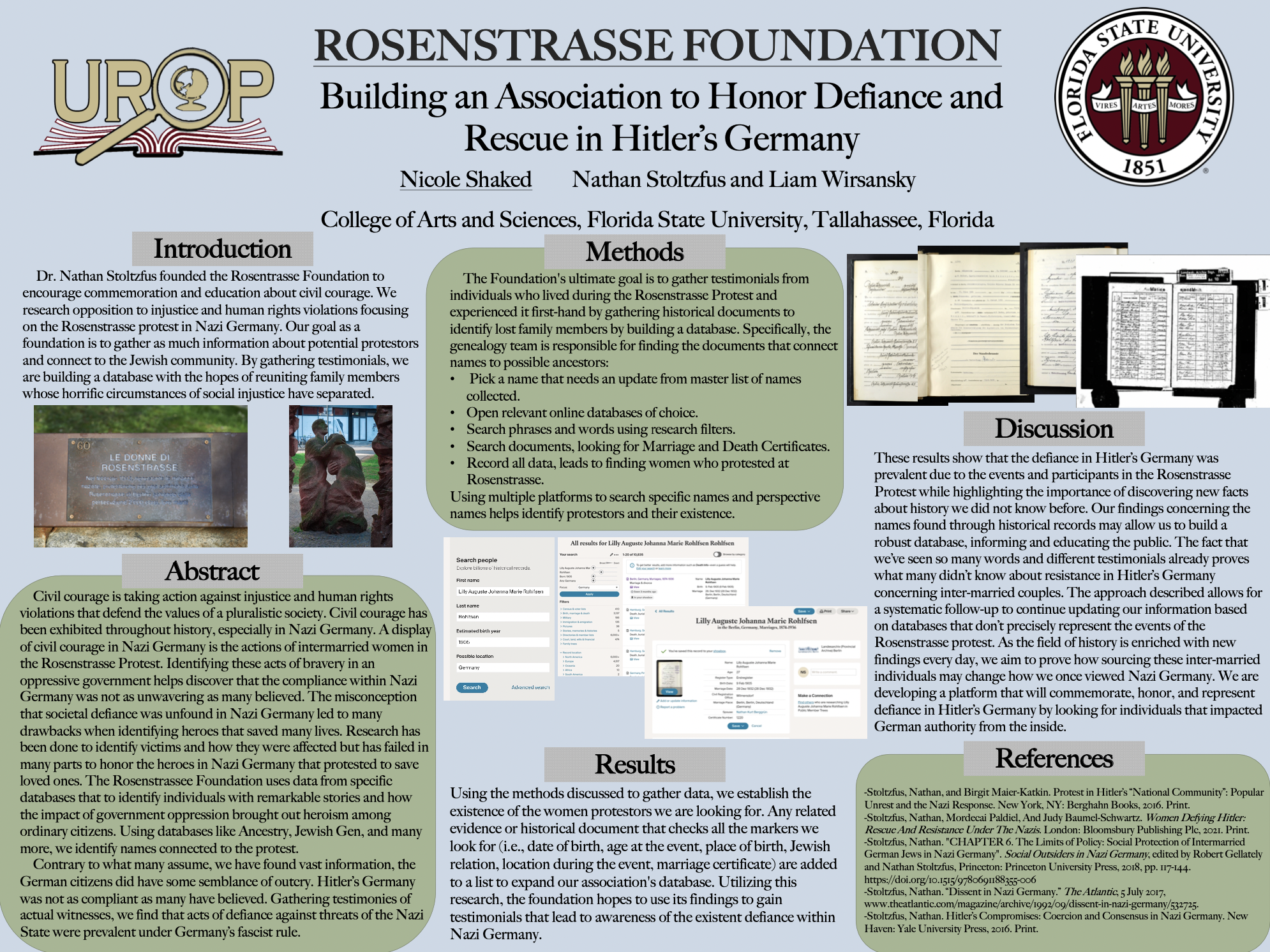Research Symposium
22nd annual Undergraduate Research Symposium
John Askew Poster Session 1: 9:00 - 9:45/Poster #10

BIO
Hi! My name is John Askew and I'm from Salt Lake City, Utah. I plan on pursuing a career in Social/Clinical Psychology, and I'm intending on minoring in philosophy and sociology.
Portrayals of Mental Health in Video Games
Authors: John Askew, Dr. Arienne FerchaudStudent Major: Psychology
Mentor: Dr. Arienne Ferchaud
Mentor's Department: Communication and Information Mentor's College: College of Communication and Information Co-Presenters: Aislinn Gonzales
Abstract
Stigmatization influences how a given society feels about, thinks of, and acts toward perceived others. Stigmatizing portrayals of people with mental illness as propagated by older forms of media such as television have been well documented, but stigmatization in video games remains an area with little research. Building off previous studies, this research involves compiling video game footage to be coded for stigmatizing portrayals of people with mental disorders. The study is ongoing, but previous research indicates that portrayals of mental health will be overwhelmingly stigmatizing, relying on stereotypes rather than informed and accurate depictions. This is concerning as the unique interactive features of video games make such stigmatization especially harmful. However, notable exceptions of games with constructive portrayals show implications for positive social change driven by interactive media.
Keywords: Video Games, Psychology, Stigma, Communications
22nd annual Undergraduate Research Symposium
Andres Felipe Gil Arana Poster Session 7: 3:30 - 4:15/Poster #2
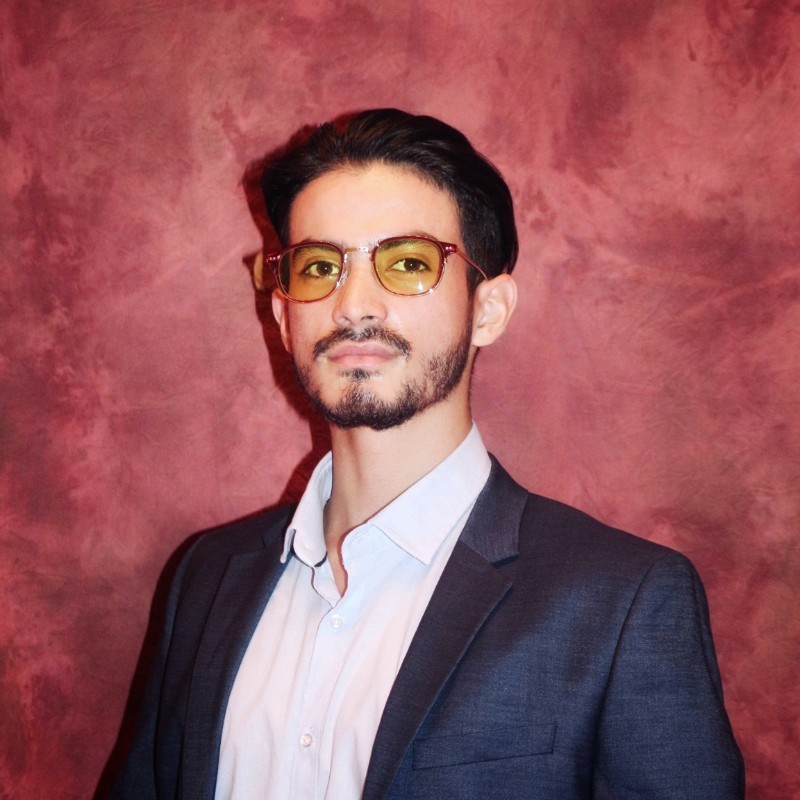
BIO
I am a premedical student striving for a medical career in the United States. I moved from Colombia, pursuing fruitful personal, academic, and professional experiences to develop a competent holistic profile in a foreign country.
Academic Leadership Programs Across the United States
Authors: Andres Felipe Gil Arana, Cameron BeattyStudent Major: Clinical Professions
Mentor: Cameron Beatty
Mentor's Department: Department of Educational Leadership and Policy Studies Mentor's College: College of Education Co-Presenters: Kara Sloper
Abstract
Throughout the past decades, leadership has grown into a formal discipline across many institutions, providing individuals an opportunity to acquire a fundamental skill set to become leaders in different educational and professional settings. This growth has led to an increased prevalence of leadership programs taught at higher education institutions around the globe. To understand the various ways institutions teach leadership, educators must acknowledge the details and demographics of these programs. The Leadership Programs Project builds on previous studies conducted by the Leadership Learning Research Center at Florida State University by adding new programs to the existing data set of over 1,500 programs. By conducting a detailed assessment of the available national programs, we determined the demographics of institutions that teach academic leadership programs and the characteristics of these programs. We found that the majority of programs fall under the discipline of education and business. Additionally, forty-three of the institutions are private and fifty-eight are public, with the majority of programs offering master’s or doctoral degrees. By understanding the elements and prevalence of these programs, leadership in higher education institutions will continue to expand, allowing for a future generation of strong and effective leaders.
Keywords: Leadership; Education; Master's; PhD
22nd annual Undergraduate Research Symposium
Natalie Livingstone Poster Session 4: 12:30-1:15/Poster #68
BIO
I am a second-year Public Health major and am pursuing a minor in Public Administration. My research focuses on firearms, their uses, and how they apply to people and society. Currently, I am doing my own research as well on gun policies in the United States. Eventually, as I work towards graduate school and my career, I would like to continue my firearm research.
Traditional Gender Role Ideologies and Firearms
Authors: Natalie Livingstone, Benjamin Dowd-ArrowStudent Major: Public Health
Mentor: Benjamin Dowd-Arrow
Mentor's Department: Public Health Mentor's College: Social Sciences Co-Presenters:
Abstract
Although several studies have examined gender differences in gun-related attitudes, little is known about how traditional gender role attitudes might contribute to the gun policy preferences of Americans or their decision to own a gun. Our analysis of national data from the Baylor Religion Survey indicates that Americans who report more traditional gender role beliefs are more likely to support policies that would increase the number of armed people in schools and allow more people to carry concealed firearms and less likely to support policies that would limit the possession of handguns, semi-automatic weapons, and high capacity magazines. Interestingly, individualswho report more traditional gender role attitudes are also less likely to support policies that would expand gun safety programs and background checks that include mental health screenings. These associations persisted with adjustments for age, gender, race/ethnicity, education, household income, marital status, the presence of children, religious identity, religiosity, political orientation, region of residence, and urban residence. We conclude that traditional attitudes about gender are consistently associated with less restrictive and more precarious gun policy preferences among Americans. These patterns are noteworthy because they support the same general conclusion: Americans who report more traditional views about gender tend to want more guns in society with fewer legal restrictions related to access and safety. We also find that there are significant differences between men and women who hold these views. Men with more traditional views of gender are more likely to own a gun and support more liberal gun policies.
Keywords: guns, gender roles, ideologies
22nd annual Undergraduate Research Symposium
Ana Gitli Poster Session 4: 12:30 - 1:15/Poster #10
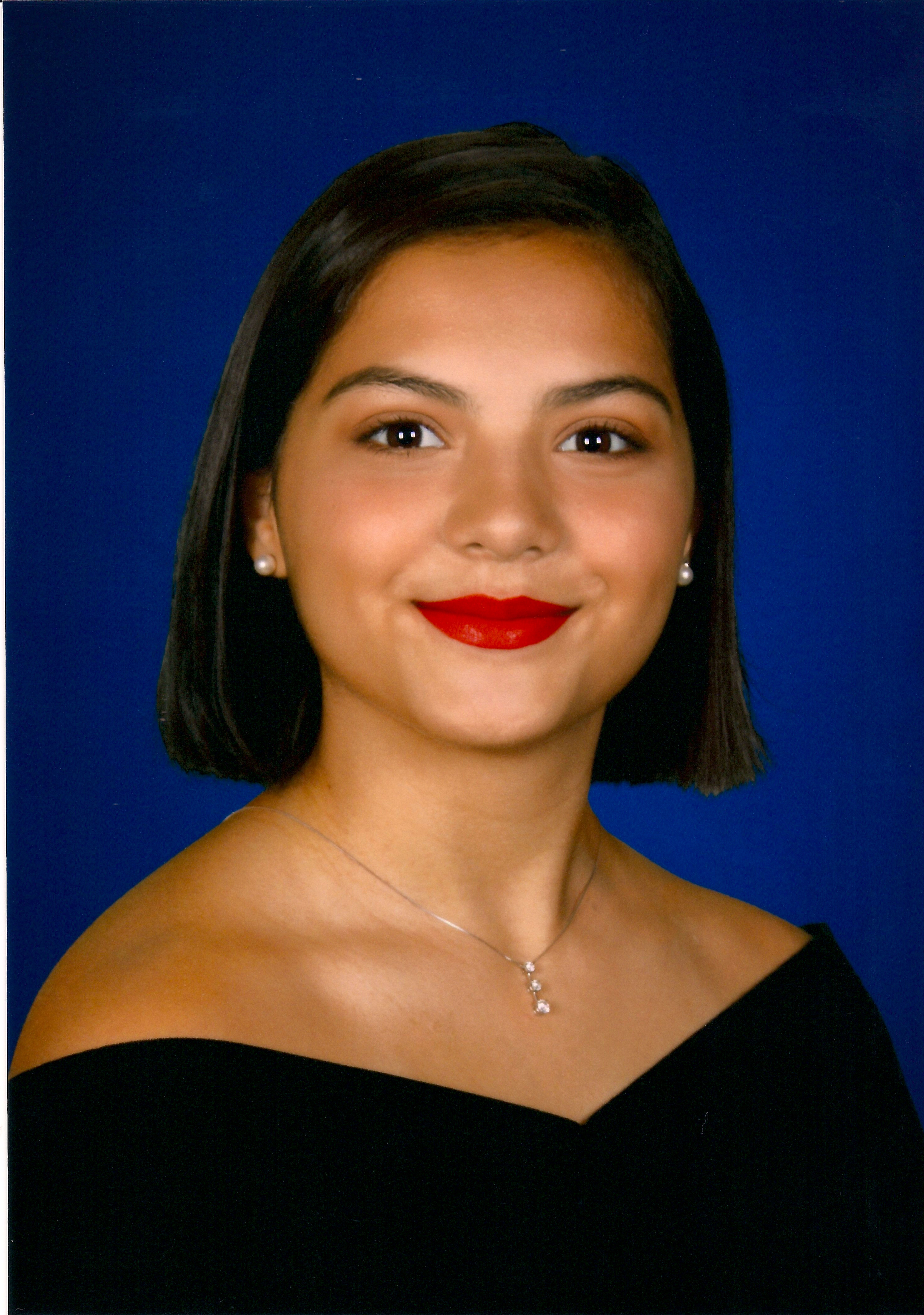
BIO
My name is Ana Gitli and I am a Senior Economics student at FSU. My minor is in Classics and I am earning an Honors certificate in Emergency Management and Homeland Security. On top of being in UROP, I participate in the Politics, Philosophy, and Economics reading group through the DeVoe Moore Center.
Gender Bias in Academic Letters of Recommendation
Authors: Ana Gitli, Jennifer AdamsStudent Major: Economics
Mentor: Jennifer Adams
Mentor's Department: English Mentor's College: College of Arts and Sciences Co-Presenters: Jack Nichols, Maria Aleman Martinez
Abstract
This investigation evaluated the systematic effects of gender bias on the quality and integrity of letters of recommendation (LORs) from various academic disciplines. To do so, we analyzed the qualitative content of 54 LORs and calculated the relative frequencies of certain adjectives, descriptive phrases, and personal qualities in each letter. We then compared the frequency values to one another and identified any statistical disparities between male and female LORs. Our preliminary findings reflect the ongoing presence of gender bias in academia, as male applicants were more likely to be described as “reliable” when compared to their female counterparts. Similarly, a greater portion of letters written on behalf of male applicants contained “superlative” descriptions and references. Nevertheless, an unexpected proportion of male applicants were described using traditionally “feminine” language and terminology. These findings indicate that certain words have started to lose their gendered connotations in recent years. Ultimately, these results can be used to create educational resources that guide professors and faculty members through the process of writing unbiased LORs.
Keywords: Gender Bias, Higher Education, Letters of Recommendation
22nd annual Undergraduate Research Symposium
Caitlyn Primous Poster Session 3: 11:00-11:45/Poster #3
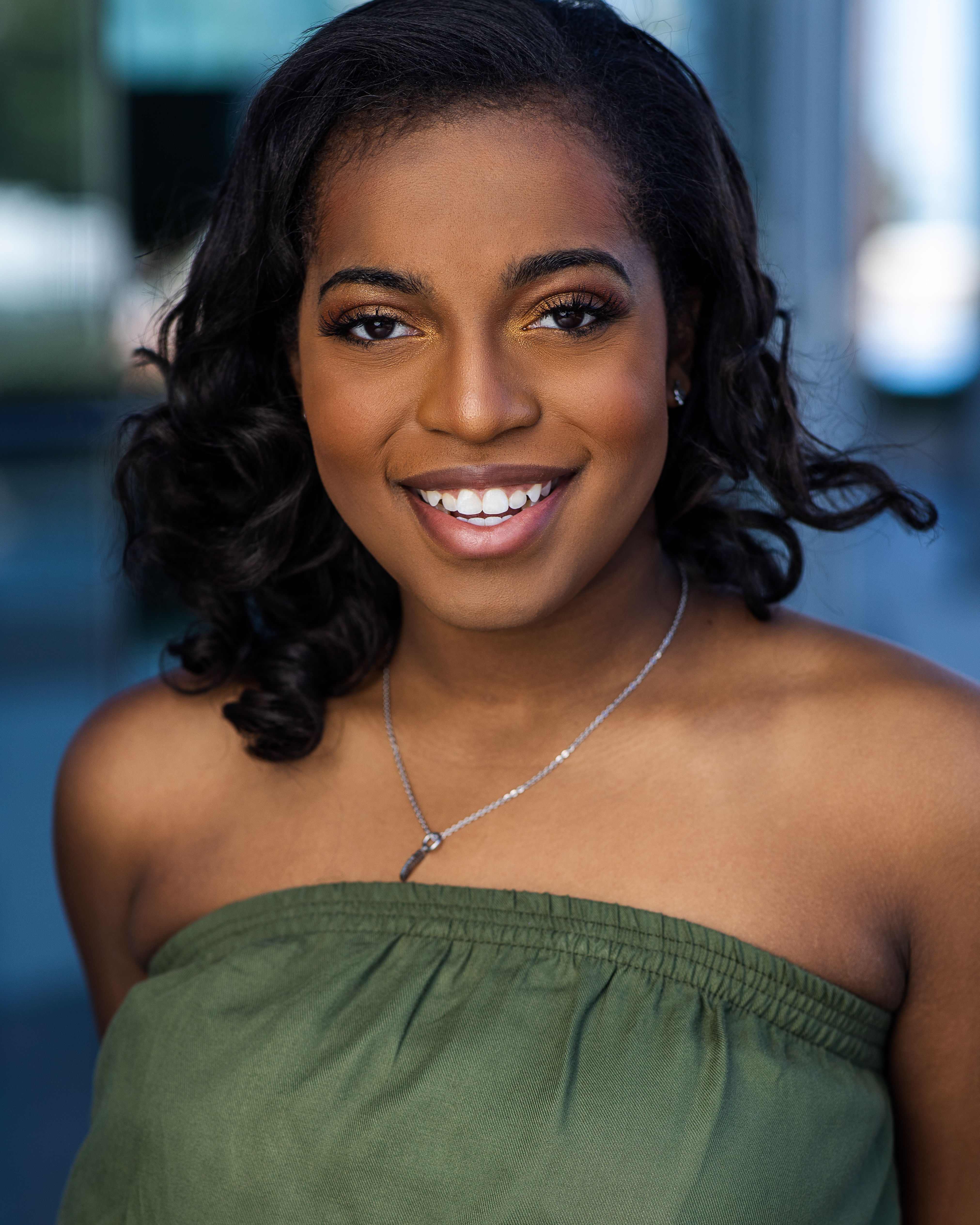
BIO
Hello, my name is Caitlyn Primous, and I am a freshman BM Music Theatre major from Marietta, Georgia. I was selected to be a part of the Honors Program here at Florida State University and am also a member of Presidential Scholars class of '25. The arts have always been a big part of my life and now I would like to contribute to the field by conducting research and devoting my time to my studies. My dream in life is to write music and create shows that will one day be able to change the world. But first, I want to learn all that I can about the thing that I love. I am excited to be sharing my research, and I am grateful for the opportunity and resources I was given to achieve my goals.
The Voice Behind the Mask
Authors: Caitlyn Primous, Jean LicksonStudent Major: Music Theatre
Mentor: Jean Lickson
Mentor's Department: Theatre Mentor's College: College of Fine Arts Co-Presenters:
Abstract
To actors, one of the most important aspects of their job lies within their voice. Being able to have the upmost control and stability of their sound is how good actors can become great actors. This has posed the question upon many of, “how can we find our most natural voice?” We have decided to expand on this question and search to find the answer by observing actors in various stages of their training here at FSU.
METHODS: Eighteen students of various backgrounds were used in our examinations. The first step came in introducing a survey to our participants to learn more about the things that have affected their lives, and in turn their voices, up to this stage in their training. After the survey, we were able to begin closer investigations on each actor. All participants were given a monologue to perform. First at the beginning of a five-month period, and then at the end of it. In the time between, they were introduced to various exercises created by voice professionals that are stated to loosen the voice and allow a performer to connect to their roots.
Keywords: Theatre, Voice, Arts, Performance
22nd annual Undergraduate Research Symposium
Morgan Waltimyer Poster Session 7: 3:30-4:15/Poster #3
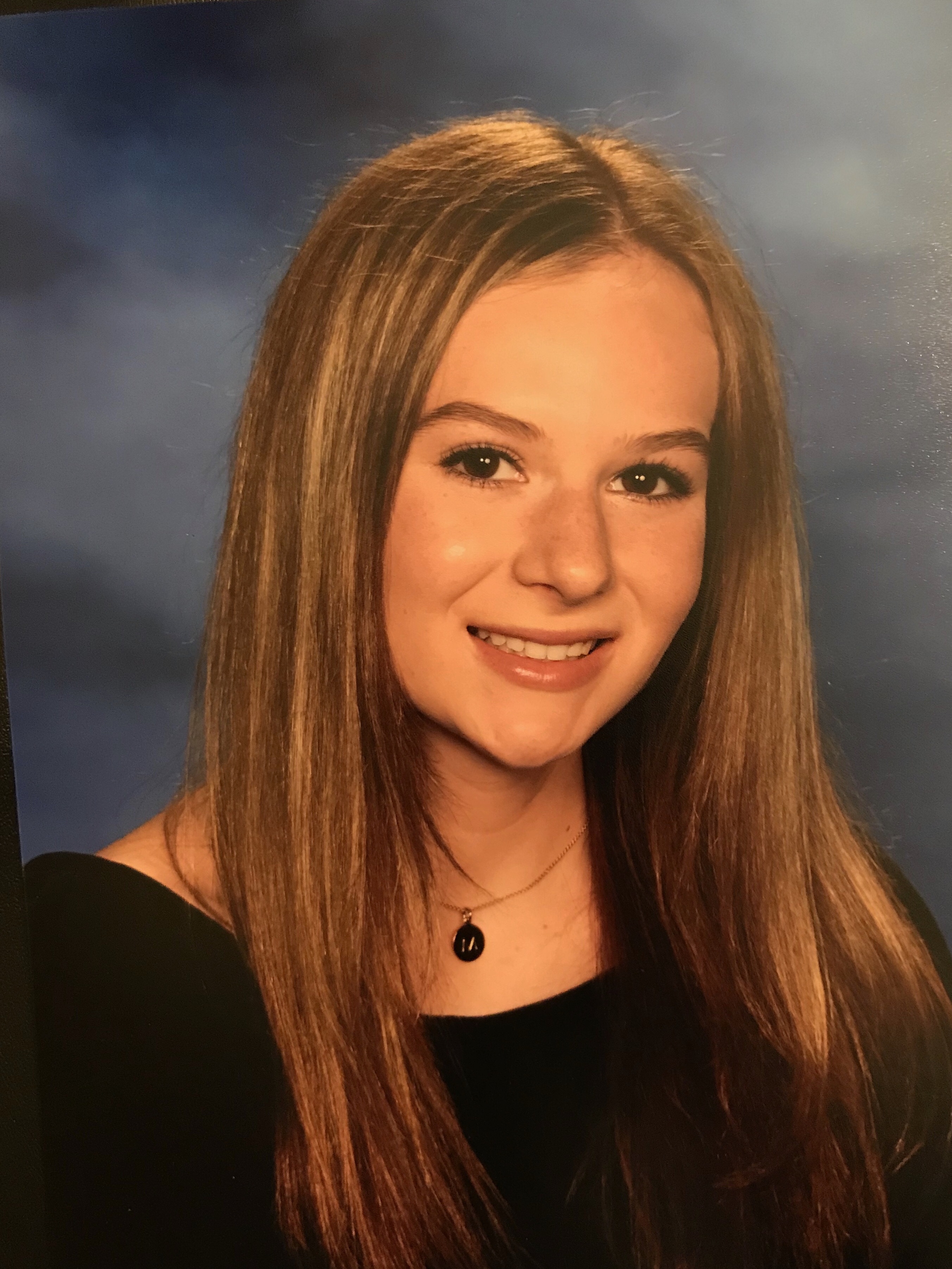
BIO
I am from Sarasota, Florida and will be graduating from Florida State University with a major in Political Science and a minor in Women's Studies. This project has allowed me to utilize women's studies topics while also learning more about the research process. This fall, I will be attending law school, where I wish to pursue a legal career in estate planning and real estate.
Tracing Women Pedagogues: Applying “Data Feminism” to a Data Discovery Project
Authors: Morgan Waltimyer, Tarez GrabanStudent Major: Political Science
Mentor: Tarez Graban
Mentor's Department: Department of Anthropology Mentor's College: College of Arts and Sciences Co-Presenters:
Abstract
Linked Women Pedagogues (LWP) is a data discovery tool that traces the intellectual influence of underrepresented women who taught in rhetorical studies (including its related fields of composition, business writing, oral communication, and community literacy) from the late nineteenth to the middle twentieth centuries, along with their other affiliations and activities, at home and abroad. This project highlights the difficulties of tracing, reflecting many aspects of what D’Ignazio and Klein (2019) call “data feminism,” which is a framework for combatting the hegemonic forces that get repeated and amplified in certain branches of information sciences that privilege certain ways of storing data. These forces can, in turn, diminish the validity and quality of stored data overall.
The search through source texts (e.g., English Journal, course catalogues, etc.) and databases (e.g., WorldCat, VIAF, HathiTrust, SNAC, DBpedia, etc.) for primary, secondary, and tertiary evidence about women who may have written, taught, or administrated in one or more areas of the field reveals clues to these women’s careers. However, much information is either difficult to find or nonexistent – even when broad- reaching databases are utilized. When a pedagogue has a partial record in one or more sources, her comprehensive professional identity, or her connections to other identities or texts, is undiscoverable due to data obstruction. This poster illustrates one workflow for overcoming the limitations, applying data feminist principles to information retrieval so as to inform a research process that makes the relationships between women, their institutions, their texts, and their roles, more visible.
Keywords: Data Feminism, Rhetoric, Linked Women Pedagogues
22nd annual Undergraduate Research Symposium
Luke Marzano Poster Session 4: 12:30-1:15/Poster #29
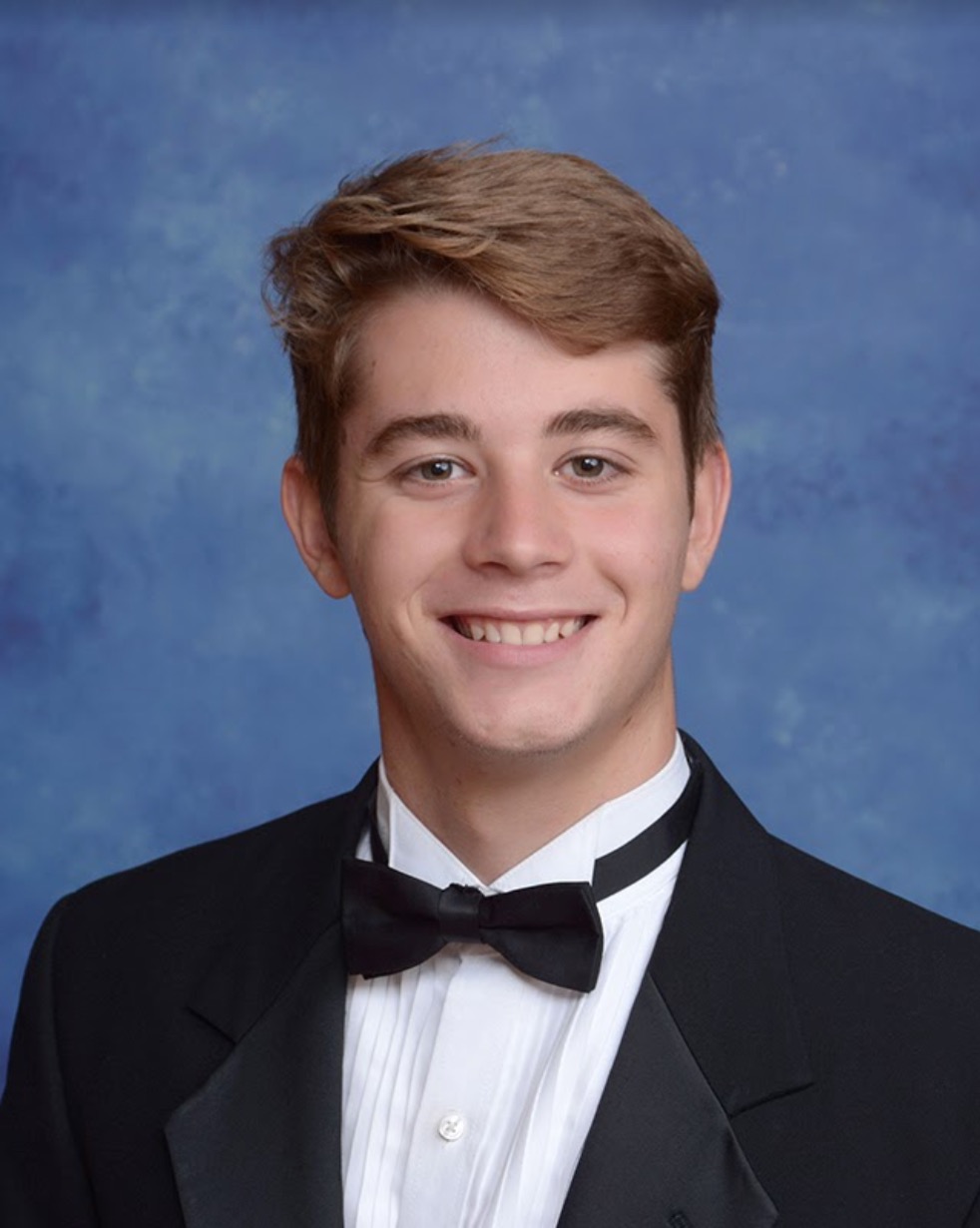
BIO
Hi, my name is Luke Marzano. I am a 19 year old freshman here at Florida State University from Melbourne Beach, Florida. I am majoring in economics but minoring in biology and chemistry while taking all of my pre-medical prerequisite courses to eventually attend medical school. I am keenly interested in the study of economics and plan to fuse that with my passion for the medical field through mission work and possibly hospital management in the future. I chose this project because of its ties to infrastructure and therefore economics, but hope to research a wide variety of topics related to economics, medicine or both during my time at Florida State.
Communicating STEM - Resilient Infrastructure and Disaster Response
Authors: Luke Marzano, Will HillStudent Major: Economics
Mentor: Will Hill
Mentor's Department: Civil Engineering Mentor's College: FAMU - FSU College of Engineering Co-Presenters:
Abstract
The Resilient Infrastructure and Disaster Response (RIDER) Center is a branch of the FAMU-FSU College of Engineering that specializes in research regarding minimizing the effects of both natural and man-made disasters. For this project, the Global Sustainability Group (GSG) was sponsored by the RIDER Center with the goal of communicating the research being conducted to the stakeholders involved with the RIDER Center. GSG is a non-profit environmental organization started by the undergraduate researcher that seeks to improve the community, specifically the environment, through community service, education and outreach. The method of communicating STEM research to RIDER’s stakeholders was for GSG to host a different event for each of RIDER’s four laboratories and one research initiative. All events were accompanied by blog posts on the GSG website, globalsustainabilitygroup.com, as well as informative social media posts on platforms such as Instagram and Facebook. Through the communication of STEM research conducted by the RIDER Center, stakeholders will be more informed and likely to contribute in meaningful ways that help facilitate further research. Ultimately, this allows for a better understanding of disasters and necessary measures to prevent or limit the extent of them. This saves not only time and money, but the lives and homes of innocent people all over the world.
Keywords: Sustainability, Resilient Infrastructure, RIDER Center
22nd annual Undergraduate Research Symposium
Dana Zisu Poster Session 1: 9:00-9:45/Poster #11
BIO
My name is Dana Zisu, I am a junior majoring in Criminology and minoring in Psychology, and I am a part of the UROP program. This program allows me to broaden my horizons when it comes to research and see what different projects are being conducted by different professors.
Effects of Age on Social Media Use and Happiness
Authors: Dana Zisu, Stacey RutledgeStudent Major: Criminology
Mentor: Stacey Rutledge
Mentor's Department: Department of Educational Leadership and Policy Studies Mentor's College: College of Education Co-Presenters:
Abstract
During the Summer of 2020, the pandemic brought everyone’s lives into a halt and impacted the way we all live our daily lives. Teenagers during that time relied on technology and social media more than ever to connect with friends and pass their time. This study consisted of 43 teens between the ages of 13-18 who were interviewed and asked to keep video diaries about their daily life and social media use. Having participants of such a wide age variety allows us to look more closely at the different social media apps and activities that the participants partake in and how that varies across age. Social media platforms are where teens are able to express themselves online to friends and strangers. However, heavy social media use as a teen can be associated with poor mental health outcomes (Woods & Scott, 2016). Looking at the information provided in the video diaries and subsequent Qualtrics forms, the participants most used social media platforms and activities performed on them become apparent, as well as what the teens rate their happiness as based on the platforms they used. Results found suggest that 16-year-olds, on average, reported a lower happiness rating compared to the other age groups. Except for the 16-year-old’s, all of the other age groups’ happiness ratings ranged from approximately 7 to approximately 8.4. Regarding social media use, findings showed that the majority of participants in each age group used Instagram, Snapchat, TikTok, YouTube, and Streaming Video Services daily
Keywords: Age, Social Media, Happiness
22nd annual Undergraduate Research Symposium
Nicole Shaked Poster Session 6: 2:30-3:15/Poster #11
BIO
I'm Nicole Shaked, a first-year student majoring in Criminology at Florida State University. I began my involvement with the Rosenstrasse Foundation in Fall 2021 through the Undergraduate Research Opportunity Program. My passion for the work the foundation is doing comes from my desire to honor and commemorate acts of civil courage that have formed our society.
Rosenstrasse Foundation: Building an Association to Honor Defiance and Rescue in Hitler’s Germany
Authors: Nicole Shaked, Nathan StoltzfusStudent Major: Criminology
Mentor: Nathan Stoltzfus
Mentor's Department: History Mentor's College: College of Arts and Sciences Co-Presenters:
Abstract
Civil courage is taking action against injustice and human rights violations that defend the values of a pluralistic society. Civil courage has been exhibited throughout history, especially in Nazi Germany. A display of civil courage in Nazi Germany is the actions of intermarried women in the Rosenstrasse Protest. Identifying these acts of bravery in an oppressive government helps discover that the compliance within Nazi Germany was not as unwavering as many believed. The misconception that societal defiance was unfound in Nazi Germany led to many drawbacks when identifying heroes that saved many lives. Research has been done to identify victims and how they were affected but has failed in many parts to honor the heroes in Nazi Germany that protested to save loved ones. The Rosenstrassee Foundation uses data from specific databases that to identify individuals with remarkable stories and how the impact of government oppression brought out heroism among ordinary citizens. Using databases like Ancestry, Jewish Gen, and many more, we identify names connected to the protest.
Contrary to what many assume, we have found vast information, the German citizens did have some semblance of outcry. Hitler’s Germany was not as compliant as many have believed. Gathering testimonies of actual witnesses, we find that acts of defiance against threats of the Nazi State were prevalent under Germany’s fascist rule.
Keywords: Political Violence, Resistance, the Holocaust
22nd annual Undergraduate Research Symposium
Olivia Rodrigue Poster Session 5: 1:30 - 2:15/Poster #56
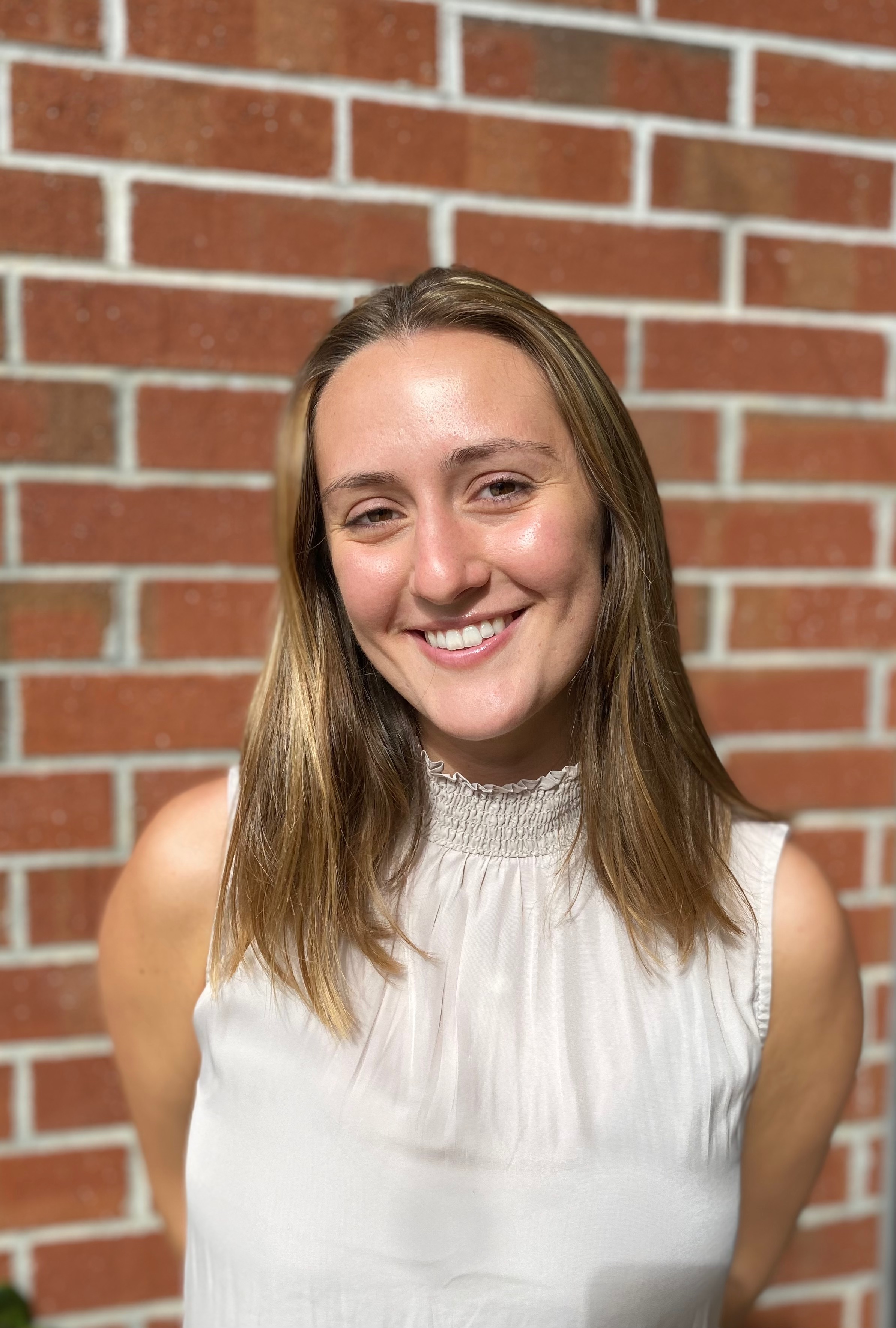
BIO
I am born and raised in South Florida, Miami, and enjoy spending my time with friends and family, cooking, being outdoors and traveling. I am a second year student at Florida State involved in UROP, Pi Beta Phi Sorority, and FSU Surf Club. My passion for the nature encourages my pursuit to involve myself in sustainable topics here at Florida State. Related to that, my interest in the Economics major has created an exciting platform for me to explore the environmental economics I am interested in and other business endeavours.
The Sustainable Development of Collegetown
Authors: Olivia Rodrigue, Dr. Crystal TaylorStudent Major: Economics
Mentor: Dr. Crystal Taylor
Mentor's Department: DeVoe L. Moore Center Mentor's College: College of Social Science and Public Policy Co-Presenters: Ava Jowers and Cameron Mullin
Abstract
Due to the rapid revitalization of Tallahassee’s CollegeTown urban area, researchers have assessed the potential impacts of sustainable development on residents, landowners, and the environment. Researchers employed the sustainability triangle model, allowing us to evaluate the sustainability of development through the perspectives of economics, environment, and equity. Researchers analyzed several datasets, including demographic data from the U.S. Census, crime data from the Tallahassee Police Department, and land use data from the Tallahassee Geographic Information Systems Department (GIS). Since the CollegeTown development was completed in 2013, total property values have nearly doubled, growing from $489 million in 2006 to $861 million in 2019. Research suggests property values will continue to grow even higher if property owners implement sustainable initiatives. Environmental research of solar energy and the CollegeTown area presents a positive increase in environmental benefits and favorable conditions for solar panels. The benefits of reducing 7.3 metric tons of carbon from the neighborhood's air annually, can increase air quality and reduce Tallahassee's share of greenhouse gasses, a major problem in today's world. Solar panel costs guarantee to pay themselves back in the long-run, and provide over $33,000 in benefits over 20 years. Throughout the development, residents of the CollegeTown area have seen gradual increases in income. Prior to the development, in 2010, only 7% of the households in the area (Census Tract 5) experienced income levels greater than $35,000 per household. By 2019, this figure had grown to 20.5%, with a median household income of $11,511 compared to $8,319 in 2010.
Keywords: Sustainable Development CollegeTown
22nd annual Undergraduate Research Symposium
Catalina Caceres Will be presented at the Southern Sociological Society Annual Meeting
BIO
I am a second-year Honors student at Florida State majoring in Criminology. As an active member on campus, I am involved with the Cuban-American Student Association (CASA), Catholic Student Union (CSU), Hispanic Honor Society (HHS), and hold a leadership position in Lambda Alpha Epsilon, a criminal justice fraternity at FSU. I learned a great deal about sociological and qualitative research, and such methods considerably overlap with current research methods done by criminologists.
Undergraduate Research Scholars’ Reflection: What we Learned about COVID-19 and Fraternity and Sorority Life
Authors: Catalina Caceres, Ladanya Ramirez SurmeierStudent Major: Criminology
Mentor: Ladanya Ramirez Surmeier
Mentor's Department: Sociology Mentor's College: Florida State University Co-Presenters: Carly Lewis
Abstract
This poster will be presented at the Southern Sociological Society Annual Conference and will showcase what two undergraduate students learned during their year-long Research Apprenticeship. The students learned introductory research skills including how to interview participants and analyze qualitative data. These students are part of the FSU Undergraduate Research Opportunity Program (UROP) which provides high-achieving students an opportunity to explore their interest in research. Preliminary results of the research project will also be presented.
Keywords: COVID-19, FSL, Greek Life, Brotherhood, Sisterhood
22nd annual Undergraduate Research Symposium
Kyle Kraeher Poster Session 4: 12:30 - 1:15/Poster #62
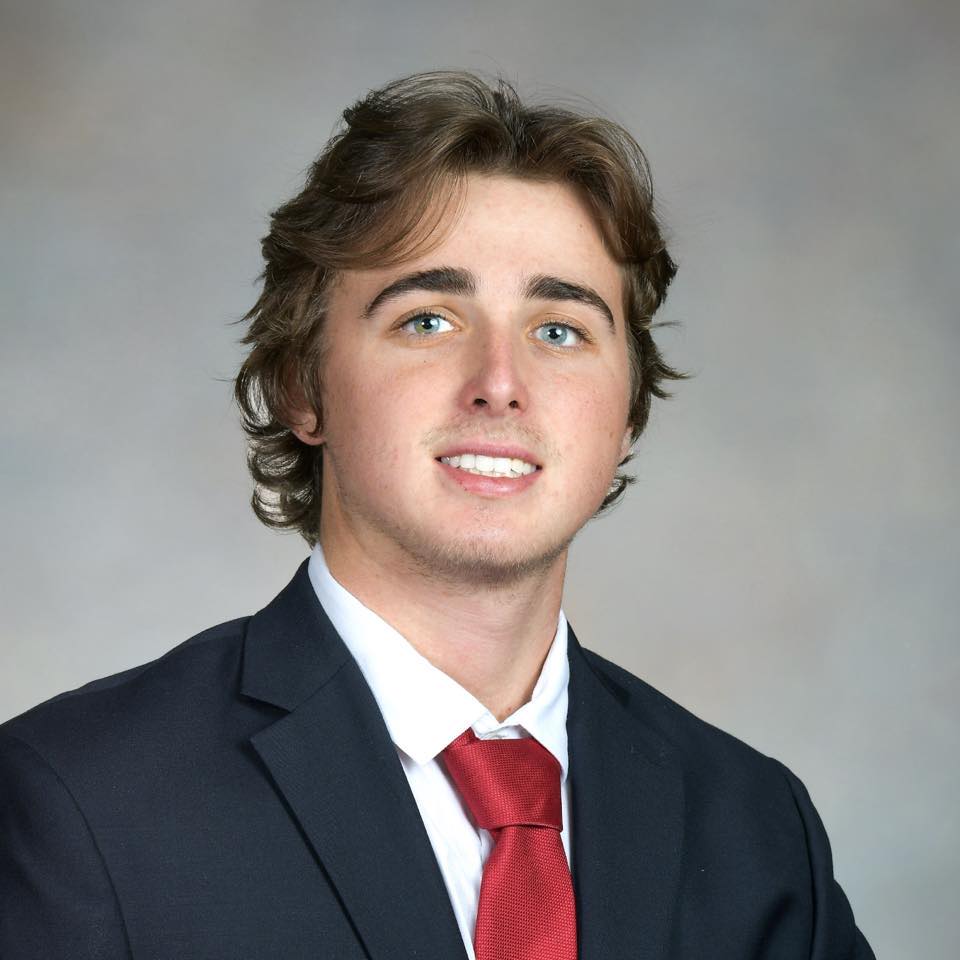
BIO
Pre-Med student from Jupiter, Florida. Sports medicine has always been extremely interesting to me and has been a professional goal since middle school. This study covers the benefits of creatine supplementation towards glucose and lipid levels, this is significant because creatine can be potentially used as a therapeutic aid for its positive effects on glucose and lipid levels which is significantly cheaper than generic medicine for these problems.
The Effects of 4-Week Creatine Supplementation on Lipid Profiles in Older Adults
Authors: Kyle Kraeher, Holly ClarkeStudent Major: Biology
Mentor: Holly Clarke
Mentor's Department: Department of Nutrition Mentor's College: FSU Co-Presenters: Victor Angel
Abstract
Aging can lead to the deterioration of a variety of physiological systems.
Older adults are at a higher risk of both hyperglycemia and dyslipidemia,
both of which can be further augmented by a poor diet and inactivity.
There is some evidence suggesting that creatine may potentially serve
as a therapeutic aid, eliciting positive effects upon blood glucose and
lipid levels. Therefore, creatine has been termed a potential
nutraceutical, capable of exerting promising effects upon common
pathologies the US population face today. The purpose of this research
was to determine the effects of four weeks of creatine supplementation
on lipids and blood glucose in healthy, older adults. Twelve adults
consumed creatine monohydrate (CM) and placebo for 4 weeks. Preand post supplementation, participants underwent a fasted venous blood
draw. Plasma levels of cholesterol (CHOL), high density lipoprotein
(HDL), triglycerides (TG), non-HDL cholesterol (nHDLc), low density
lipoprotein (LDL), very LDL (vLDL), and blood glucose (GLU) were then
analyzed using a Piccolo Xpress clinical chemistry analyzer. Results
were analyzed by 2x2 Repeated Measures ANOVA, with significance
accepted as p < 0.05. vLDL decreased in both groups on average – 2.46
mg/dL showing significant improvement in TG and GLU however there
were no significant changes following CM in LDL, HDL, nHDLc, or
CHOL. Due to the strong relationship between triglycerides and glucose
with CVD, the ability of creatine to reduce these suggests that creatine
may have the possibility to serve as an adjuvant therapy for the control of
TGs and glucose.
Keywords: Creatine Lipid Adults
22nd annual Undergraduate Research Symposium
Mary Moshos Poster Session 1: 9:00 - 9:45/Poster #24
BIO
Mary is a first-year FSU student from Jacksonville, Florida. As an undergraduate at the College of Music, she is interested in pursuing multiple professions, potentially including a position in the military band. The UROP program has given her a scope to delve into areas of study that satisfy her academic curiosities and allow her to continue working in other possible career paths of interest. Some of her hobbies include reading, hiking, and dancing.
The Rosenstrasse Foundation: Nonprofit Fundraising
Authors: Mary Moshos, Dr. Nathan StoltzfusStudent Major: Flute Performance
Mentor: Dr. Nathan Stoltzfus
Mentor's Department: History Mentor's College: Florida State University Co-Presenters: Robert "Trey" Cochenour & Madison Bogert
Abstract
Our fundraising team worked together to create a GoFundMe to help further the research of the Rosenstrasse Foundation. This GoFundMe page was specifically catered to gaining full access to an Ancestry.com account. Since Ancestry was offering a discounted holiday special, it seemed like the best opportunity to start fundraising. This account was dedicated to our genealogy team, and they use the account to gain access to valuable documents and information about the families the foundation is currently researching. Then the documents and information are sent to our biography team, where they write up biographies on these families. After the biographies are edited and finalized, they are sent to our website and social media team where it is directly published to our website. We are currently working on publishing a second GoFundMe fundraising campaign to gain access to a premium Wix account. Which will then be used to help our Foundation’s website have a more professional appeal. The premium account will also help us produce advertisements to gain more followers for our foundation.
Keywords: Rosenstrasse, Nonprofit, Fundraising
22nd annual Undergraduate Research Symposium
Allie Cordero Poster Session 4: 12:30 - 1:15/Poster #40
BIO
Allie is a second-year student at Florida State University seeking a dual-degree in Psychology and Sport Management with a minor in Spanish. During her time in UROP, she focused on factors that influence one's ability to learn a second language and specifically, ways to improve success in learning English as a second language; as a bilingual student, this is an important topic to her and she hopes to help others become fluent in English as she did. Post-graduation, Allie plans to pursue a master's degree in Sport Psychology and someday work in the NFL to increase awareness of mental health and diversity in professional sports.
Learning a Second Language Unconsciously
Authors: Allie Cordero, Dr. Shaofeng Li, Ph.D.Student Major: Psychology & Sport Management
Mentor: Dr. Shaofeng Li, Ph.D.
Mentor's Department: Department of Modern Language Mentor's College: College of Arts and Sciences Co-Presenters: Corey Burns, Luis Wong Chen, Gabi Zernik, Carson Long, Jeffrey Sims
Abstract
The purpose of this study is to assess the bearing of 3 different implicit language aptitude scores [LLAMAD, Artificial Grammar (AG), and Passive Priming (p)] on L2 speech performance. It was hypothesized that all three of these implicit aptitude scores would have significant positive correlations with L2 speech performance. 250 speech samples were recorded by Chinese college student English-L2 learners and rated on comprehensibility and accentedness. The averaged ratings were then compared to the students’ corresponding LLAMAD-, AG- and p-scores resulting from separate tests. It was found that LLAMAD-scores had a significant positive correlation, AG-scores had no significant correlation, and p-scores had a significant negative correlation with L2 speech performance. These results have a bearing on L2 education at large; L2 education traditionally centers on conscious (explicit) language-learning and scholars have called into question the exclusion of unconscious (implicit) language-learning. This data suggests conflicting support for the inclusion of unconscious language-learning streams into L2 curriculum.
Keywords: language, aptitude, syntax
22nd annual Undergraduate Research Symposium
Kieran Stenson Poster Session 5: 1:30-2:15/Poster #45
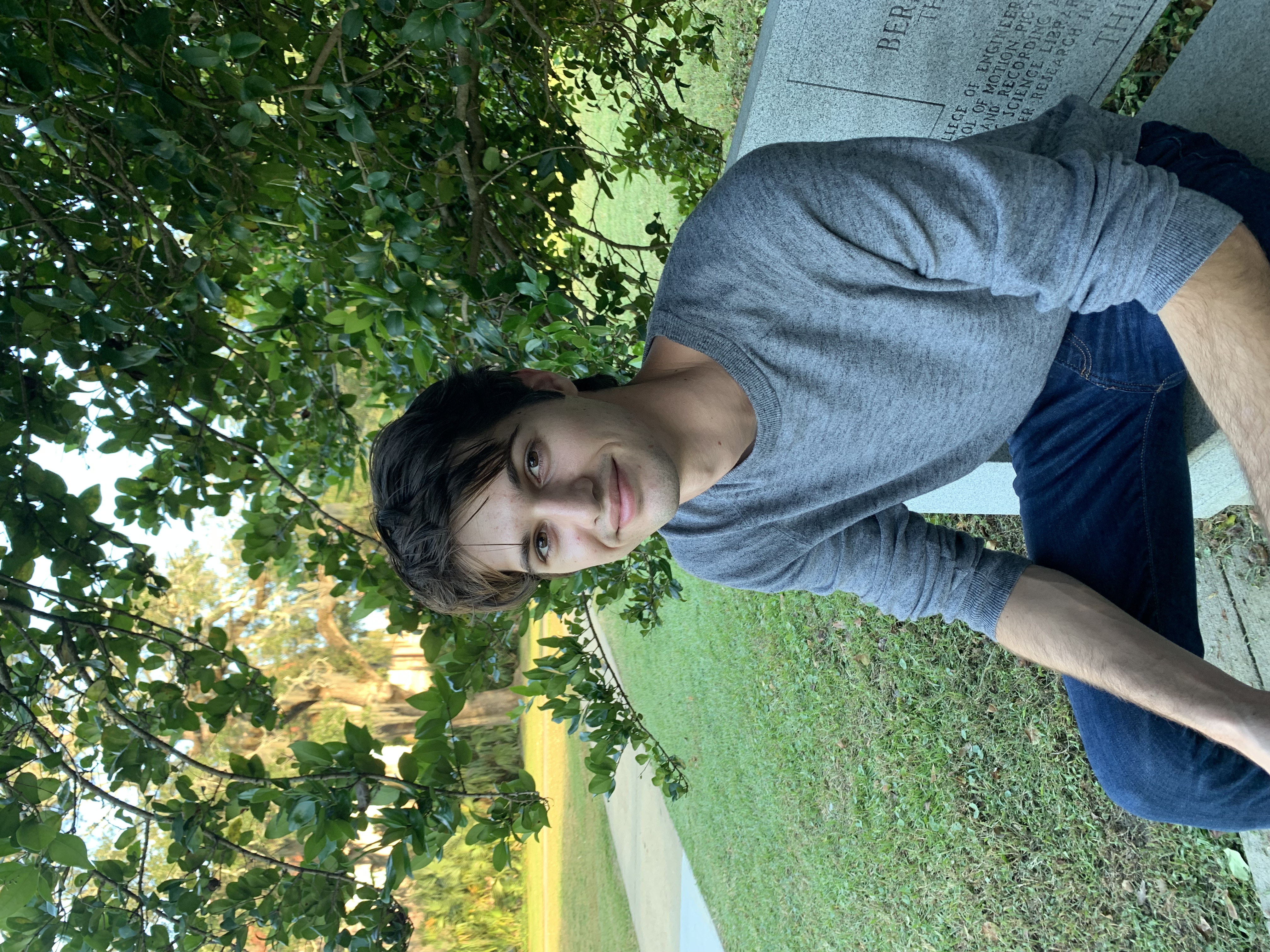
BIO
My name is Kieran Stenson and I am a Freshman FSU student from Palm Harbor, Florida. I am majoring in History, and hope to teach and complete further research in that field in the future. My research interests include local history, Eastern Europe, specifically Poland, and Public History. I am also involved on campus as Secretary and President-Elect of the History Club at FSU and an InternFSU internship with Special Collections in Strozier Library.
Florida State University Student Responses to the Ole Miss Riot of 1962
Authors: Kieran Stenson, Dr. Jennifer KoslowStudent Major: History
Mentor: Dr. Jennifer Koslow
Mentor's Department: History Department Mentor's College: College of Arts and Sciences Co-Presenters:
Abstract
To develop a better understanding of contemporary 20th century attitudes towards race and integration among students at Florida State University (FSU), I investigated articles concerning the 1962 University of Mississippi riots from the FSU student newspaper, the Florida Flambeau. My analysis of Flambeau artifacts revealed two important tendencies in the majority of student articles, the first being that most of the Flambeau articles expressed outrage towards the rioters at the University of Mississippi and the actions of Governor Ross Barnett. Second, most student writers did not juxtapose the Mississippi riots with Florida universities. Despite the dearth of explicit comparisons in the Flambeau articles between the Florida universities and the University of Mississippi concerning race and integration, I determined how students at FSU viewed these issues by analyzing the language and attitudes of the Flambeau articles on the subject. I discovered that while most FSU students viewed the Mississippi rioters negatively, fewer were prepared to extend their support to integration or condemn racial injustice closer to home. James Meredith’s cause remained especially polarizing. The significance of these findings is in how they reveal the prevailing attitudes of FSU students. Overt racism and disobedience of civil authority were easily condemned, but the causes of integration and civil rights remained controversial. There were individual exceptions to these norms—some students praised Barnett and blamed the Kennedy Administration, Supreme Court, or Communists for the riots. In either case, the Flambeau articles offered important insight into the contemporary beliefs of FSU students during this period.
Keywords: Tallahassee, Race, Florida Flambeau, segregation, integration
22nd annual Undergraduate Research Symposium
Jake Albrighton Poster Session 2: 10:00-10:45/Poster #55

BIO
My name is Jake Albrighton and I am currently a freshman here at FSU. I am majoring in Biological sciences and was excited to undertake the UROP program not only to gain experience in research, but also to open doors to future career endeavors. The research with Dr. DuVal and Pearl Rivers has been extremely fulfilling and I am excited to tackle more research in the future.
How Does Female Presence Affect Male Bill Swiping in Lance-Tailed Manakins
Authors: Jake Albrighton, Pearl RiversStudent Major: Biological Sciences
Mentor: Pearl Rivers
Mentor's Department: Department of Biological Science Mentor's College: College of Arts and Sciences Co-Presenters: N/A
Abstract
Abstract
The research I am conducting pertains to the behavior of the lance-tailed manakin(Chiroxiphia lanceolata) and the potential causation for a behavior known as bill swiping in which the bird swipes it’s bill on their dance perch where they perform mating dances. The purpose of the study is then to identify the reason for the bill swiping considering the cause is somewhat unknown between multiple theories. The question the research is trying to answer is what causes male lance-tailed manakins to bill swipe on the dance perch. My hypothesis is that the cause for bill swiping is due to excitement at the presence of a female in the vicinity which causes the birds bill swipe. To answer this question, I have been reviewing video footage of the birds and will investigate to discover if bill swiping among males is more prevalent when a female is nearby. This research is natural and uniquely obtained as well because the lab research takes place in Panama as field research rather than a lab which allows the team to procure organic behavior.
Keywords: Sexual selection, birds, reproduction, bill swipe
22nd annual Undergraduate Research Symposium
Danielle Fonsing Poster Session 6: 2:30 - 3:15/Poster #30
BIO
My name is Danielle, and I am a first year student at Florida State University. I am from Tampa, Florida and enjoy staying involved on campus through UROP, Special Olympics, the Honors Program, Swim Club, and the Asian American Student Union. My passion for learning about the environment has prompted me to conduct research within this field and want to make actionable and sustainable change within my community. Along with accomplishing this aspiration, I plan on becoming an actuary in the near future.
Two Sides of Justice: Balancing between Environmental and Economic Justice for Sustainable Communities
Authors: Danielle Fonsing, Heewon LeeStudent Major: Actuarial Science
Mentor: Heewon Lee
Mentor's Department: Askew School of Public Administration and Policy Mentor's College: College of Social Sciences Co-Presenters: Zoe Pettigrew
Abstract
In the United States, federal, state, and local governments have established policies in efforts to maintain the three pillars of sustainability: economic development, environmental protection, and social equity for sustainable development. However, these policies are often unsuccessful in this mission as they usually take an incomprehensive approach and do not address all pillars. With the intention of creating improved policies, this study aims to explore the compatibility of economic and environmental justice in resurging urban environments through the examination of zoning programs. Specifically, zoning programs for economic development and how they disproportionately affect environmental and health outcomes of marginalized communities are examined. To accomplish this, the study will construct a nationwide dataset to capture a marginalized community development program, research community-level environmental outcomes and demographic information from 2016 to 2019, and employ the difference-in-differences method to empirically test the hypotheses. It is expected that the results will provide evidence that will influence policies through economic development, environmental protection, and social equity for sustainable development.
Keywords: government, zoning programs, sustainability, economic development, environmental justice
22nd annual Undergraduate Research Symposium
Dhruvi Shah Poster Session 4: 12:30-1:15/Poster #31
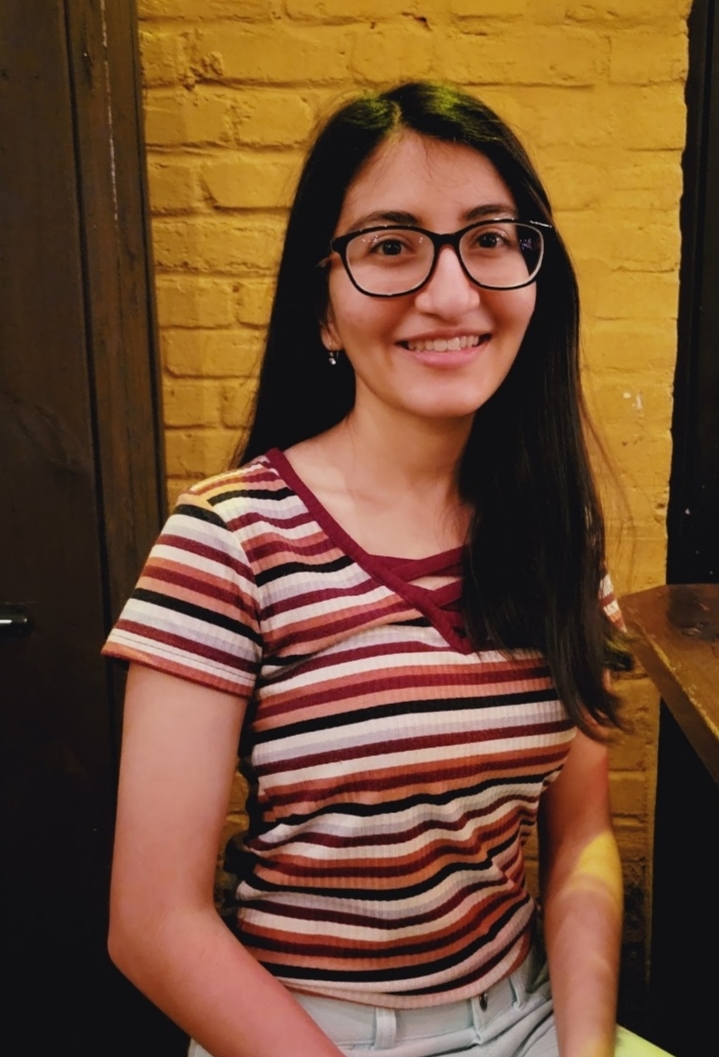
BIO
My name is Dhruvi Shah and I am a Computer Science major. I am interested in software engineering and aspire to become a successful software engineer. Besides software engineering, I also would also love to learn about machine learning, artificial intelligence, and robotics.
Designing a User Friendly Interface for IPFS
Authors: Dhruvi Shah, Diogo OliveriaStudent Major: Computer Science
Mentor: Diogo Oliveria
Mentor's Department: School of Information Mentor's College: College of Communication & Information Co-Presenters:
Abstract
The InterPlanetary File System (IPFS) is a peer-to-peer distributed file system that focuses on content-based addressing across the same system of files. Creating a Merkle DAG file structure, IPFS encompasses a block storage structure with content-addressed hyperlinks. This protocol can be seen as an improvement to the universal HyperText Transfer Protocol (HTTP). With IPFS being such a new topic in the field, it was imperative to start off by learning about the protocol itself and accessing the IPFS Desktop. The IPFS Desktop is an application that can be downloaded onto a laptop. It allows users to upload and retrieve files to and from IPFS. In accessing the Desktop, we found that its limitation in configuration has become a challenge for its adoption. Due to the lack of tools, users are not able to customize aspects of the protocol in order to fit their needs. To handle this, we propose a user interface (UI) that will allow users to have access to the different properties of IPFS and be able to alter them to best fit their necessities.
Keywords: Computer Science, IPFS, UI, Networks
22nd annual Undergraduate Research Symposium
Kersten Galeta Poster Session 5: 1:30 - 2:15/Poster #14
BIO
I am Kersten Galeta and I am currently a sophomore studying exercise physiology. I am also on the pre-medical track and I plan on going to medical school after I graduate. My team and I are working under the supervision of Dr.Ni in order to build a scanning tunneling microscope.
Building Ultra-Low Noise Control Systems for Scanning Tunneling Microscopy
Authors: Kersten Galeta, Dr. NiStudent Major: Exercise Physiology
Mentor: Dr. Ni
Mentor's Department: Physics Mentor's College: Physics Co-Presenters: Keely Paul, Denis Le, Rogelio Baucells
Abstract
Nano-imaging the elementary excitations observed within the Terahertz range in solid materials permits observation of phase transitions and identification of topological surface states. By coupling an Edinburgh Instrument FIRL100 gaseous far-infrared laser source to an in-house constructed optical microscope, we analyze the alpha to beta phase transition of Bi4I4 in an attempt to capture signatures of the surface state changes that parallel this transition. Utilizing the laser source requires identifying distinctive laser lines via the installation of a proper detector for THz (far-infrared) light. To identify the power lines, we first transition Deuterated methanol (CD3OD) from a liquid to a gas and then analyze various lines based on the results of this chemical until the most powerful line is discovered. The second step of the process—performing nano-imaging—relies on the information gathered from the scattered light that results from the nano-tip’s interaction with laser light and the sample itself. The information collected from this, as well as scanning the XY dimensions of the sample, permits us to develop a detailed image of the sample. This research is still in the process, but thus far we have discovered the most powerful laser line to have a line designation of 10R24, a wavelength of 10.220, a drive reading of 4106, and a power output of 49W. This is still under experimentation due to some machinery complications. Thus, we have not yet been able to proceed towards the process of nano-imaging.
Keywords: scanning tunneling microscope
22nd annual Undergraduate Research Symposium
Renee Souvenir Poster Session 2: 10:00 - 10:45/ Poster #36
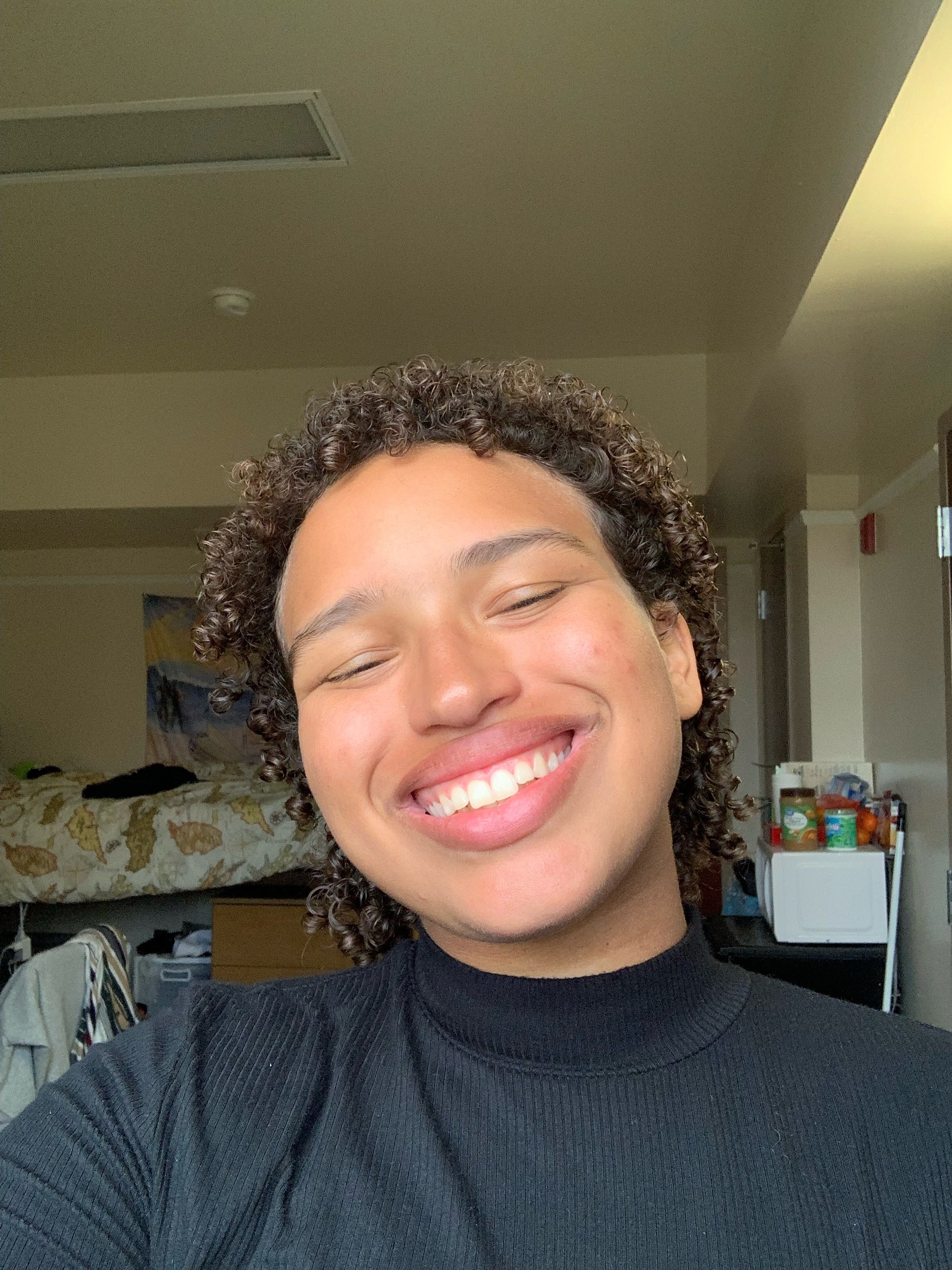
BIO
I am a sophomore studying psychology and minoring in social work. I am interested in research about sociology and psychology, specifically research that focuses on marginalized communities and restorative justice. I am interested in obtaining a master's in social work and pursuing a career in youth advocacy.
Developing Video Content to Engage Students in STEM
Authors: Renee Souvenir, Dr. Hannah HiesterStudent Major: Psychology
Mentor: Dr. Hannah Hiester
Mentor's Department: Department of Biological Sciences, Office of STEM Teaching Activities Mentor's College: University of Cambridge Co-Presenters: Sylvia Long, Justin Gonzalez, Nikki Kanakis
Abstract
In the growing digital age, videos are a useful source of accessible learning material. However, it is important to design and use videos effectively to maximize the benefits to the learner and to avoid misusing technology. The purpose of this study is to create guidelines for instructors to use in the creation of multimedia video lessons, specifically focusing on STEM subjects. These guidelines direct instructors to design videos that support effective learning through consideration of essential and generative processing, motivation, and elimination of extraneous elements. The guidelines were constructed through a comprehensive literature review of multimedia video learning and video design, examining the effects of video structure, modes of instruction, emotion and motivation, and other aspects of video learning. In addition, this study included designing and creating sample videos that adhere to the guidelines. Overall, the guidelines are a useful tool for STEM education, providing a baseline for the creation of impactful videos.
Keywords: Multimedia learning, STEM videos, Education

